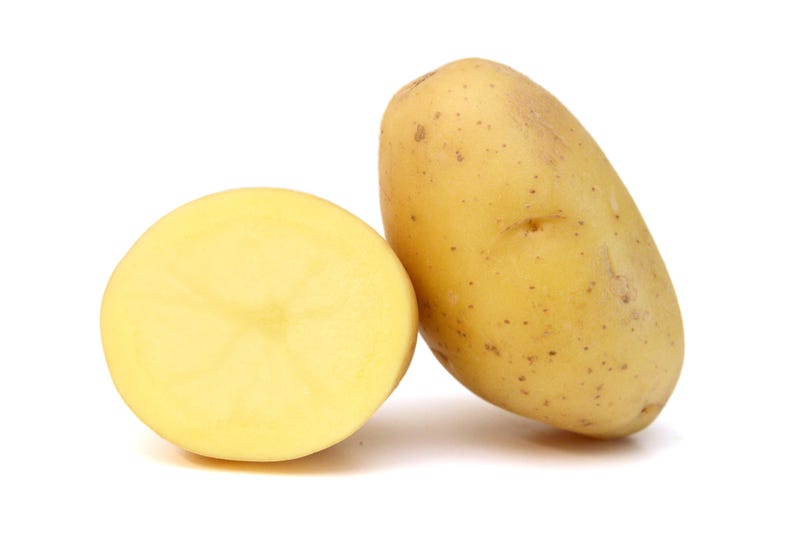
Inflation has already exacerbated rising food insecurity around the globe, according to World Bank, and climate change is poised to make the problem even worse. That’s why researchers want to make a super potato.
Listen and subscribe to The L.A. Local podcast: your TL;DR for what's happening in Southern California
“Scientists from McGill University are looking for ways to improve the resilience and nutritional quality of potatoes,” said a press release from the Canadian university. “Professor Martina Strömvik and her team have created a potato super pangenome to identify genetic traits that can help produce the next super spud.”
While a genome includes one organism’s complete set of genetic instructions (also known as the DNA sequence), a pangenome “aims to capture the complete genetic diversity within a species,” explained McGill. A super pangenome goes further, to include multiple species. To build the pangenome, scientists fed data from databanks into supercomputers.
Researchers selected the potato for this project because it is a staple food source around the world. According Faostat data cited by the Helgi Library, total global potato consumption reached 256,432 kilotons in 2020.
“This is 1.74% more than in the previous year and 10.6% more than 10 years ago,” Helgi Library said.
In the U.S. alone, the Department of Agriculture reported in 2019 that each person consumed 49.4 pounds of potatoes. Per the department, potatoes and tomatoes were consistently the most available vegetables for Americans in recent decades.
Although a majority of American households are estimated to be food secure (89.8% in 2021), 12.5% of households with children that year were impacted by food insecurity.
“Our super pangenome sheds light on the potato’s genetic diversity and what kinds of genetic traits could potentially be bred into our modern-day crop to make it better,” said Professor Strömvik of the super potato project. She collaborated with researchers across Canada, the U.S. and Peru to conduct the research. “It represents 60 species and is the most extensive collection of genome sequence data for the potato and its relatives to date,” she added.
In particular, wild potato species genome data could provide insight into what genetic traits are most critical when it comes to adapting to climate change and extreme weather. This, in turn, could improve food security, according to Strömvik. She hopes that super potatoes could withstand various diseases and extreme rain, frost and droughts.
“According to the researchers, the pangenome can be used to answer many questions about the evolution of this important crop that was domesticated by Indigenous peoples in the mountains of southern Peru nearly 10,000 years ago,” said McGill. “It could also be used to help identify specific genes to create a super spud using traditional breeding or gene editing technology.”
Research from Strömvik and her partners, “Pangenome analyses reveal impact of transposable elements and ploidy on the evolution of potato species” was published this summer in the National Academy of Sciences (PNAS) journal.
Follow KNX News 97.1 FM
Twitter | Facebook | Instagram | TikTok
